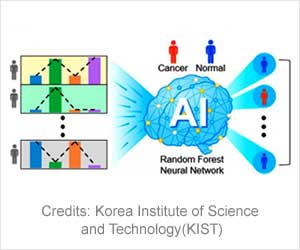Researchers Develop An AI That Can Understand What We Subjectively Find Attractive.

Docent Michiel Spapé, senior researcher, commented, "In our previous studies, we designed models that could identify and control simple portrait features, such as hair color and emotion. However, people largely agree on who is blond and who smiles.”
The researcher added that since attractiveness is associated with cultural and psychological factors that play unconscious roles in our individual preferences, it is a more challenging subject of study.
In the initial stages, a generative adversarial neural network (GAN) created hundreds of artificial portraits. Thirty volunteers were shown images one at a time. Their brain responses were recorded with an electroencephalograph (EEG) while they were asked to pay attention to the faces they found attractive.
The EEG data obtained was analyzed with machine learning techniques which connected individual EEG data to a generative neural network through a brain-computer interface.
Professor Tuukka Ruotsalo, head of the project, explained, "A brain-computer interface such as this can interpret users' opinions on the attractiveness of a range of images. By interpreting their views, the AI model interpreting brain responses and the generative neural network modeling the face images can together produce an entirely new face image by combining what a particular person finds attractive."
Advertisement
Spape adds, "Succeeding in assessing attractiveness is especially significant, as this is such a poignant, psychological property of the stimuli. Computer vision has thus far been very successful at categorizing images based on objective patterns. By bringing in brain responses to the mix, we show it is possible to detect and generate images based on psychological properties, like the personal taste.”
Advertisement
The study may also benefit society by advancing computers' ability to learn and understand subjective preferences through AI solutions and brain-computer interface interaction.
Source-Medindia















